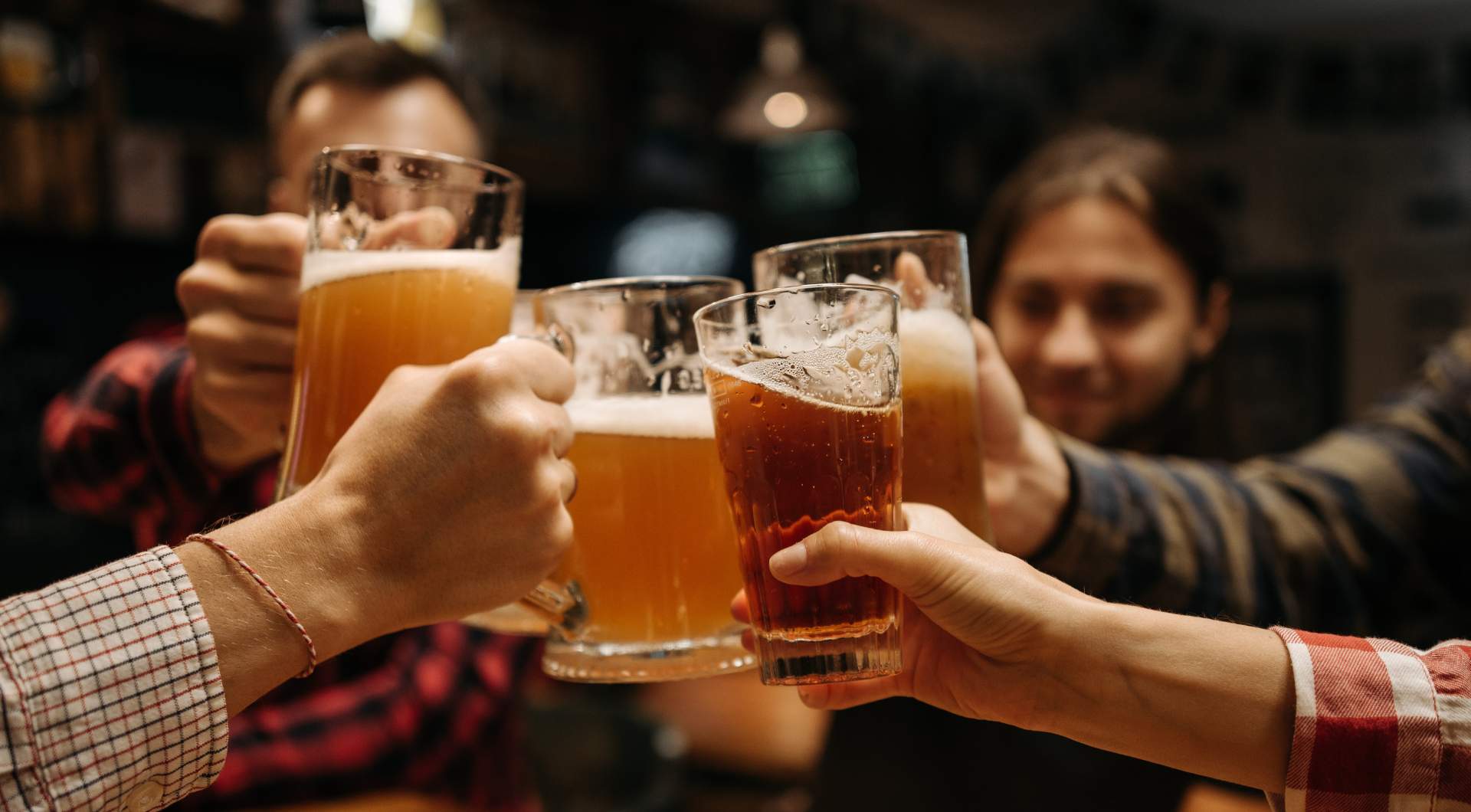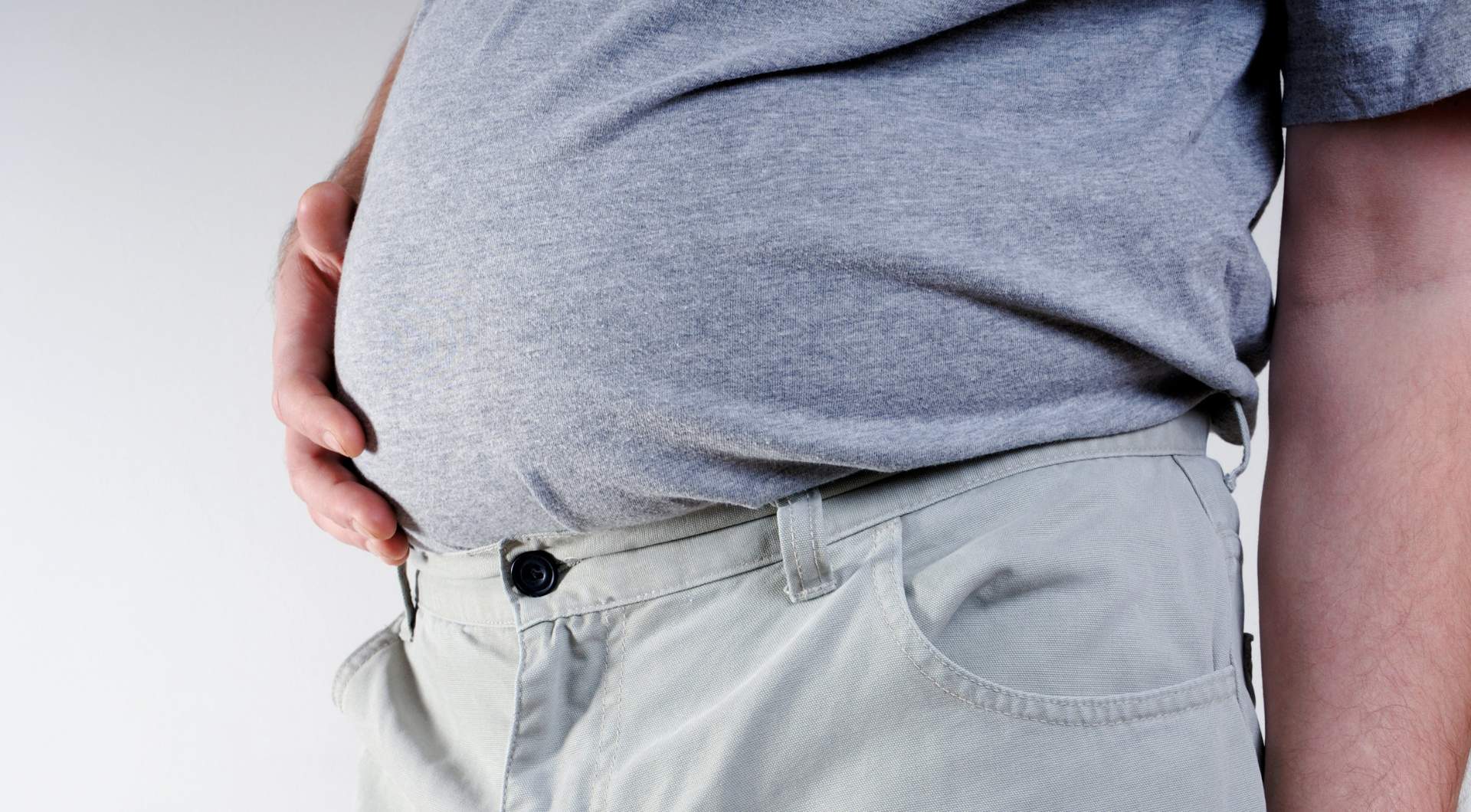From Happy Hour To Bulging Belly: The Connection Between Alcohol and Stomach Bloating

You do a double-take as you pass the mirror — is it just your imagination, or is your midsection becoming a bit rounder than it used to be?
Yes, you are not as young as you once were, but you also wonder if throwing back the extra drinks lately is starting to catch up with you.
Rubbing your tummy, you vow to cut back on your recent alcohol habits, but you truly are not sure if you can do it on your own.
Are alcohol and bloating related? Keep reading to understand how your alcohol consumption could truly be the cause of your growing belly size and how to fix it.
Table of Contents
- What Is Alcohol Bloat?
- What Are the Symptoms of Alcohol Bloating?
- 4 Possible Reasons Drinking Alcohol May Cause Bloating
- Tips for Decreasing Alcohol Bloat
- Commonly Asked Questions About Alcohol and Bloating
- Put an End To Bloating From Alcohol With Dove Recovery’s Personalized Treatment Programs for Alcohol Addiction Recovery
Alcohol bloating, specifically, is a problem related to consuming alcohol because it increases your stomach acids. People who drink alcohol on a regular or excessive basis may also experience further effects of chronic alcohol abuse, such as chronic gastritis and ulcers.
It is often inaccurately referred to as a “beer belly”, implying only alcohol is the reason someone has a larger belly.
Alcohol alone does not necessarily cause people to gain weight in their abdominal area. Some people who consume large amounts of alcohol for years do not have beer bellies, while others who drink alcohol regularly may be obese.
There can be several hundred calories in just one drink, along with a high sugar content for some. In addition to the empty calories, alcohol is an inflammatory substance. The combination of alcohol, sugar, carbonation, syrups or sweeteners can easily result in gas, abdominal discomfort, or facial swelling.
Digestive symptoms of alcohol bloating often include:
- Abdominal distention
- Feeling of fullness and tightness
- Gas or belching
- Abdominal discomfort or pain
- Ulcers
- Nausea
- Constipation
Other generalized symptoms might present as:
- Puffiness or swelling in your face
- Feeling unwell, uncomfortable, and lacking energy
If you or your loved one is struggling with alcohol use disorder, treatment is possible — even in severe cases. Dove Recovery is a comprehensive treatment facility in Columbus, OH, dedicated to the rehabilitation of alcohol use disorder.

#1: Gas-Producing Ingredients
Beer, sparkling wine, and cocktails mixed with soda are carbonated. The bubbles from the carbonation release extra gas into your stomach, and then your belly expands, giving you the “beer belly” feeling.
Beverages that are produced by a fermentation process, such as beer and wine, are big culprits of a bloating effect.
#2: Irritation and Inflammation
Alcohol irritates the stomach lining and can increase acid production.
This slows down digestion, causes inflammation in the gut (gastritis), and makes it harder for your system to process food that can leave you feeling swollen and heavy.
Symptoms of gastritis may include:
- Bloating
- Abdominal pain
- Nausea
- Heartburn
- Belching
Irritation in the gastrointestinal tract will disrupt normal digestive processes, including impaired absorption of nutrients and an altered balance of bacteria in the gut.
#3: Dehydration and Fluid Retention
Alcohol is a diuretic, which means it will increase your need to urinate more frequently, which then depletes fluids. To guard against too much fluid loss, your body may respond by retaining extra water — this leads to puffiness and swelling of the tissues in your face, abdomen, and hands and legs.
#4: Individual Sensitivities
Regular drinking disrupts the balance of healthy gut microbiota. This imbalance increases gas production and makes your digestive system less efficient.
Additionally, some people are intolerant to ingredients found in some drinks, like gluten in beer and sulfites or tannins in wine. These ingredients can trigger a variety of symptoms, and those who already deal with gastrointestinal issues may be extra sensitive to gas, nausea, bloating, etc.

Alcohol bloat may become very uncomfortable after a night of drinking, and can worsen if the drinking episodes are frequent.
There are recommendations you can follow to reduce the alcohol bloat and make the next day a bit more comfortable, including:
- Stay well hydrated while drinking alcohol by alternating drinking water with every alcoholic beverage consumed.
- This may help prevent becoming drunk.
- It will help to keep your body from retaining excess fluids that can cause bloat.
- Be aware of the types of alcohol you drink, as some beverages like white wine or processed drinks have higher levels of sugar and carbohydrates that can cause additional bloat.
- Replenish your body with foods and beverages high in electrolytes to help replace lost fluids and reduce bloating, such as:
- Bananas
- Sports drinks
- Spinach
- Beans
- Beets
- Fish and chicken
- Milk, yogurt, and cheese
- Enjoy light snacks throughout your day to keep you feeling full. Snacks can help optimize digestion and prevent further bloating.
- Be sure to sleep at least seven to eight hours after a night of drinking to allow recovery.
- Take time off between drinking episodes to allow normal digestion patterns to resume.
- Do not ignore the need for physical activity.
- Take medications for relief as needed and as directed:
Heavy or chronic drinking increases alcohol bloat and risk of gastrointestinal complications, while even moderate alcohol intake can prolong inflammation and discomfort. The best way to resolve alcohol bloat is to stop drinking. Dove Recovery in Columbus, OH, offers compassionate and expert support tailored to your needs. Contact our team of professionals today and take the next step toward healing, both physically and emotionally.
How Do You Get Rid of Alcohol Bloating?
Alcohol bloating is a common complaint, especially after drinking beer, wine, or sugary cocktails. It happens because alcohol is inflammatory, dehydrating, and disrupts digestion.
Fortunately, most bloating is temporary, and you can relieve symptoms with a few strategies.
How Long Does It Take for Bloating From Alcohol To Go Away?
Alcohol bloat may last a few days to several weeks in recovering drinkers, depending on drinking history and organ recovery.
If you have recently binged on alcohol and it is not a habit, facial and belly swelling fade within 2-3 days after drinking. Your body recovers from inflammation and rebalances fluids and electrolytes quickly once alcohol leaves your body.
For long-term drinkers, bloating may persist between two and six weeks as your body slowly recovers and heals, including your:
- Liver
- Gut and digestive system
- Lymphatic system
Chronic drinking delays the return of a normal digestive process and the regulation of fluids.
How do you get rid of alcohol bloating?
- Adequate and consistent hydration
- A clean diet
- No relapses with addiction to alcohol or binge episodes

What Type of Alcohol Bloats You the Most?
Not all alcohol leaves you with uncomfortable stomach bloating, and some are greater culprits than others.
Types of alcohol that you may experience symptoms from include:
- Beer
- There is a high potential for bloating due to the fermentation process of making beer and the carbonation present in the drink.
- The nickname “beer belly” is appropriate due to the mixtures of gas, carbohydrates, and often a large volume of consumption.
- Champagne or sparkling wines
- High carbonation present in these beverages can leave your stomach full of gas bubbles.
- Wines and mixers with high sugar content will result in a puffy belly.
- Cocktails mixed with sodas or tonic water
- Cocktails often have alcohol with higher potency, which can irritate your stomach and the digestive process.
- Fizzy mixers can add to the discomfort with additional carbonation.
- Sugary mixes may also increase bloating due to fermentation in your gut.
- Cider
- Cider may result in just as much bloating as beer for some people.
- Carbonation, the presence of sugar, and sometimes higher fructose content can all contribute to bloating.
- Still wine
- Usually, wine will result in less bloating than beer or champagne, but red and white wines still have sugar content that may irritate your stomach.
- Those sensitive to sulfites and tannins may feel extra puffy and bloated.
- Clear spirits
- Vodka, gin, tequila, whiskey, rum, etc.
- These beverages are least likely to cause bloating when consumed straight and without mixers.
- They can still be irritating to your stomach and cause potential dehydration, but they usually result in less bloating.
Occasional or chronic alcohol use can wreak havoc on your body, especially when it comes to causing digestive issues such as bloating. Unfortunately, occasional use can easily turn into habits — later leading to an addiction.
Addiction does not just affect individuals — it can be damaging to families, relationships, careers, and can negatively weave its way into your entire life. If you or a loved one is struggling with alcohol use, it may be time to seek professional help. Dove Recovery offers resources for those looking to release themselves from the grip of alcohol.
Professional counselors and therapists will be present every step of the way on your sobriety journey so you can heal without fear of judgment. Our knowledgeable and experienced staff members specialize in addiction recovery treatment.
We offer customized treatment plans and programs that cater to each client’s needs, using reliable and proven approaches and programs, such as:
- Psychotherapy sessions
- Dual diagnosis therapy
- Relapse prevention techniques
- Counseling and therapy
- Inpatient programs
- Outpatient programs
- Partial hospitalization programs
Dove Recovery offers a comprehensive range of services designed to help you achieve recovery and sobriety, with customizable options to fit your needs. Contact us today to begin your road to recovery.

